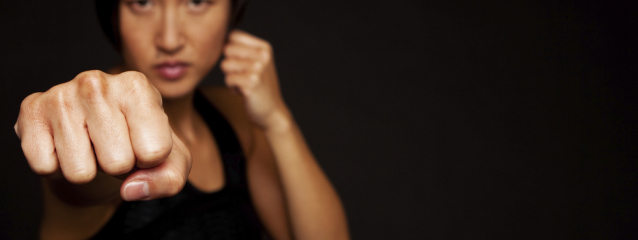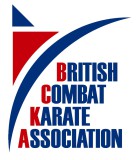
These go up to 11
Last night at Chelmsford Combat Karate it was the opportunity for the middle-aged men to show the youngsters who was the toughest. After an easy first half the second half was dominated by a long drill. Ten knee drives to the kick shield, run to the far side of the mat and back, do a burpee, back to knee drives. Easy. Except on the second set it was two burpees, then three, all the way up to ten. Except for me. I chose to do eleven. This wasn't a punishment, or trying to prove I was better and it was despite feeling a touch under the weather with a cold. I gave myself 11 in order to equal out the drill so everyone had to work hard and everyone had a chance to finish within the time limit of 60 seconds after the first person to complete their set. I chose eleven not because it was more than other people but because I wanted to drive myself to be fitter. I have set no absolute standard for myself, I just want to be better than I was last month.
In a microcosm this is what I love about karate. It is an open ended system where no matter what you achieve there is always something else to aim for. All the best sports are like this. A round of
golf can always be done in one shot less, the 100 m in a millisecond less, the javelin thrown a centimetre further. This means, as an aside, I don't rate things like darts and snooker as sports (to
me they are pastimes or activities) because there is a limit on performance beyond which no improvement is possible. But there is one thing about karate that is a problem: the black belt.
So many people seem to see the black belt as an end point. I am massively disappointed every time I see someone give up training as soon as they reach this standard. The introduction of ranks (and their marking by coloured belts) into the martial arts is a relatively modern invention and can be dated to the period 1880 - 1900 when they were first used in judo. Judo differed in a number of ways from karate. The two important ones for this discussion are that it was taught to large classes and is a sport. Karate in contrast was taught to one or two students at a time and was a civilian combat system. Therefore, judo needed ranks and belts to ensure fair matches between those of similar ability and to help the instructors deal with a large class - karate needed neither. Karate gained a similar structure to judo when it was introduced to Japan and specifically Japanese schools.
The black belt was intended to mark out a student who had "mastered the basics" - i.e., someone who was now a competent student ready to begin to train in more complex techniques. It wouldn't be until they achieved their 3rd Dan (usually at least five years later) that they would be considered competent to teach other students unsupervised. Somehow this idea that the black belt marked an end rather than a beginning of serious training has been lost, which is a real shame. If you don't use something - fitness, strength or flexibility - it will quickly decline, in a matter of weeks. If you reach the black belt standard then give up training, how long is the skill, strength and speed - the things you need to protect yourself - going to last? Probably no more than three months. If you want that black belt to mean something it has to mean "this is the point where I commit to lifelong training", otherwise you've wasted all the effort you put in to reach this point.
